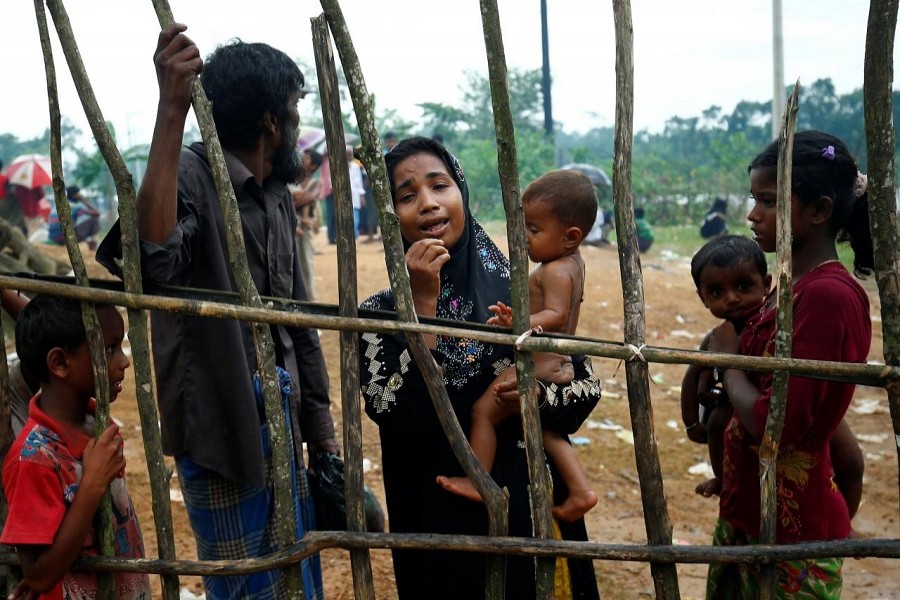A leading trade body has stressed ensuring political harmony in the country apart from facing properly the challenges of rising geo-political tensions and the Rohingya refugee crisis to achieve the country's economic growth target.
Metropolitan Chamber of Commerce and Industry (MCCI), Dhaka also pointed out few other challenges in its latest quarterly Review of Economic Situation in Bangladesh (October-December 2017), released on Thursday, while appreciating the government's economic achievements.
It said the political harmony in the country should be maintained in order to achieve the country's growth and inflationary targets.
The trade body pointed out the main challenges for the country's economy -- rising geo-political tensions and Rohingya refugee crisis -- and said the challenges will have to be met.
It stressed the need for ensuring adequate infrastructure, energy, policy continuity, skilled manpower, political stability and investment-friendly climate as the key factors for achieving higher economic growth.
It also expressed concern over the energy supply situation despite the government's success in power sector in the short-run, and said the long-term goals for sustainable power and energy supply remain largely unresolved.
About the downside risks, the MCCI said the liquid assets of scheduled banks lowered by nearly 3.0 per cent to Tk 2.6719 trillion at the end of December last from Tk 2.5960 trillion in June last.
It said the excess liquidity in the banking system, after deducting the minimum required liquid assets, stood at Tk 866.96 billion as of December last.
The state-owned banks' liquid assets fell by nearly 10 per cent to Tk 981.51 billion and, in case of private banks, it fell by Tk 7.47 billion at the end of December last.
However, the liquid assets of shariah based commercial banks, foreign banks and specialised banks were up at the end of December last.
The MCCI said the investors' participation in the country's capital market increased in the quarter under review.
It said the Dhaka Stock Exchange maintained a positive trend in January 2018, largely supported by fuel and power stocks.
It noted that the export earnings in the first half of the current fiscal year to December last grew by 7.15 per cent to US$ 17.916 billion.
Import payments, on the other hand, in five months to November last stood at $23.749 billion, which is 27.57 per cent higher than that of the corresponding period of 2017.
It said the trade deficit nearly doubled to $7.607 billion in the five months to November last as the import payments were higher than the export receipts.
"The deficit in trade in services, too, widened during the July-November period of the currently fiscal year," the MCCI noted.
The trade deficit usually accounts for goods meant for export and imports, excepting the net flow from the services sector.
The trade body said that the inflationary pressure was higher in the urban areas than the rural areas during the period under review.
However, the general point-to-point inflation in December last fell slightly by 0.08 percentage point to 5.83 per cent. The food inflation was increased slightly by 0.04 percentage point to 7.13 per cent in December last.
Meanwhile, between end of June and end of December last, the local currency depreciated by 2.54 per cent in against US dollar, it added.


